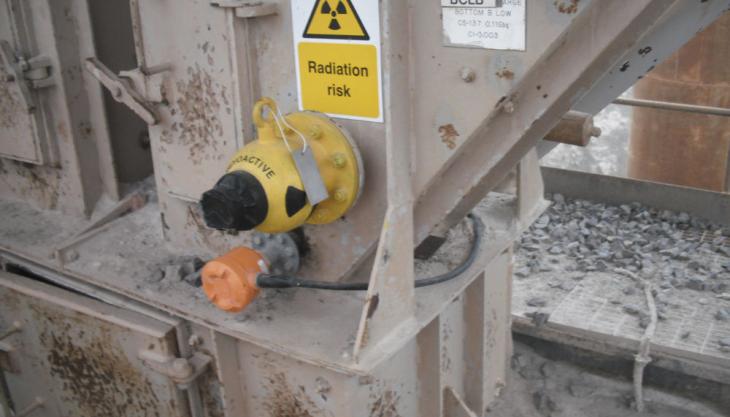Singleton Birch choose a non-nuclear option

Hycontrol supply microwave blocked-chute detection system for lime kiln at Batts Combe Quarry
SOLIDS level measurement specialists Hycontrol have replaced a gamma radiation blocked-chute detector with a new low-power microwave system for Singleton Birch at their lime kiln in Batts Combe Quarry, in Somerset.
The blocked-chute detection system plays a key role in ensuring a steady, uninterrupted supply of crushed limestone to the kiln, determining when the feed hopper has emptied and is ready to be refilled.
Until recently, nucleonic devices were considered to be the only reliable form of instrumentation for level measuring applications in such harsh environments, but the potential dangers, high costs and strict licensing requirements associated with the use of nuclear sources in industrial environments are extremely onerous.
According to Hycontrol, the straightforward cost comparisons alone give microwave technology a favourable five to tenfold advantage, but additional costs of ownership for the nucleonics system have to factor in the added mandatory site security, strict operator training, provisions for checks from the authorities plus annual licensing fees.
In addition, the nuclear sources have a very high cost of disposal, in isolation typically equating to more than twice the initial cost of a comparable microwave system.
Hycontrol’s new generation of microwave switches is proving to be a reliable, robust and cost-effective alternative, offering operators a 100% safe solution for blocked-chute detection.
The microwave level switches provide a simple, non-contact, non-intrusive option suitable for many applications on both liquids and solids. Batts Combe is a typical installation consisting of a microwave transmitter and receiver, mounted facing one another across the bottom of the hopper.
During operation the transmitter emits a continuous, low-power, 24GHz microwave beam to the receiver and an output relay is energized or de-energized when this beam is obstructed by the material being monitored. The switch trigger point is determined by the amount of microwave energy received and can therefore be adjusted to cater for specific products and applications.
A key advantage of this latest generation microwave technology is its ability to ‘see through’ low dielectric materials such as refractory bricks, ceramics, plastics and polymers. This means that low-cost replaceable windows can easily be fitted into the sides of a chute, vessel or container, keeping the process closed with no disruption to material flow and the microwave transmitters/receivers at arms length, away from the harsh environment.
In the Batts Combe application, low-friction, temperature-resistant PTFE windows are utilized.
Hycontrol say the system is extremely easy to set up and calibrate and the microwave signals are unaffected by high dust levels or material build-up on the sides of the chute.
Moreover, microwave power levels are well below any required industry standards and, therefore, the device requires no special procedures for its operation and use.
Also, depending on the application, Hycontrol microwave technology can supply additional site-monitoring benefits. With the addition of a flow switch module, the same detector set can then provide flow and no-flow detection as well as blocked chute alarms.



